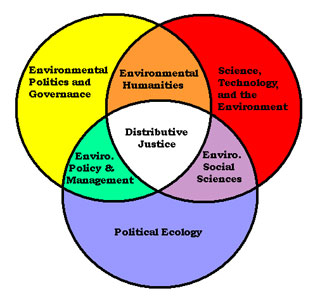
The Division of Society & Environment brings perspectives from the social sciences, humanities, and environmental sciences to our teaching, research, and extension in the field of natural resources and the environment. Our faculty and students explore how natural resources and the environment influence and are influenced by social, cultural, and politico-economic institutions and processes. We study environmental policies and management strategies in a variety of institutional and environmental contexts, examining the implications of how they are formulated and applied, and developing practical approaches for how they can be improved.
Our mission is to bring perspectives from the social sciences, humanities, and environmental sciences to our teaching, research, and extension in the field of natural resources and the environment. Our faculty and students explore how natural resources and the environment influence and are influenced by social, cultural, and politico- economic institutions and processes. We study environmental policies and management strategies in a variety of institutional and environmental contexts, examining the implications of how they are formulated and applied, and developing.
Our work – conducted in Africa, Asia, Europe, Latin America, and throughout the United States – draws from the full range of scientific theories and methods of interpretive analysis, and employs multiple scales from local to global. It is grounded in the specifics of history, culture, and geography unique to each site, and it also seeks to discover the larger patterns that emerge only from broader perspectives. We emphasize that solving environmental problems depends not only on “getting the science right,” but also on understanding how policy is made and implemented, and working within the complex frameworks of possibility and constraint posed by governments, institutions, communities, and the environment itself.
Our faculty have been educated in anthropology, rural and urban sociology, political science, economics, geography, history, and public health, as well as in interdisciplinary programs that cross the social sciences, humanities, and environmental sciences. We aim to achieve excellence in scholarship as well as effectiveness in applying our research to promote environmental justice and arrive at practical solutions to concrete problems. Current topics of interest include the following:
- environmental justice
- environmental history and ethics
- political economy of the environment
- global environmental change and international agreements
- resource-dependent communities, regions, and industries
- modes of international, national, and local development
- transformations in land and resource property and access
- violence and the environment
- environmental and agrarian social movements
- the intersection of gender, race, and class with environmental problems and management
- decision models and methods in ecosystem management policies and politics concerning land, water, forest, and coastal resources

